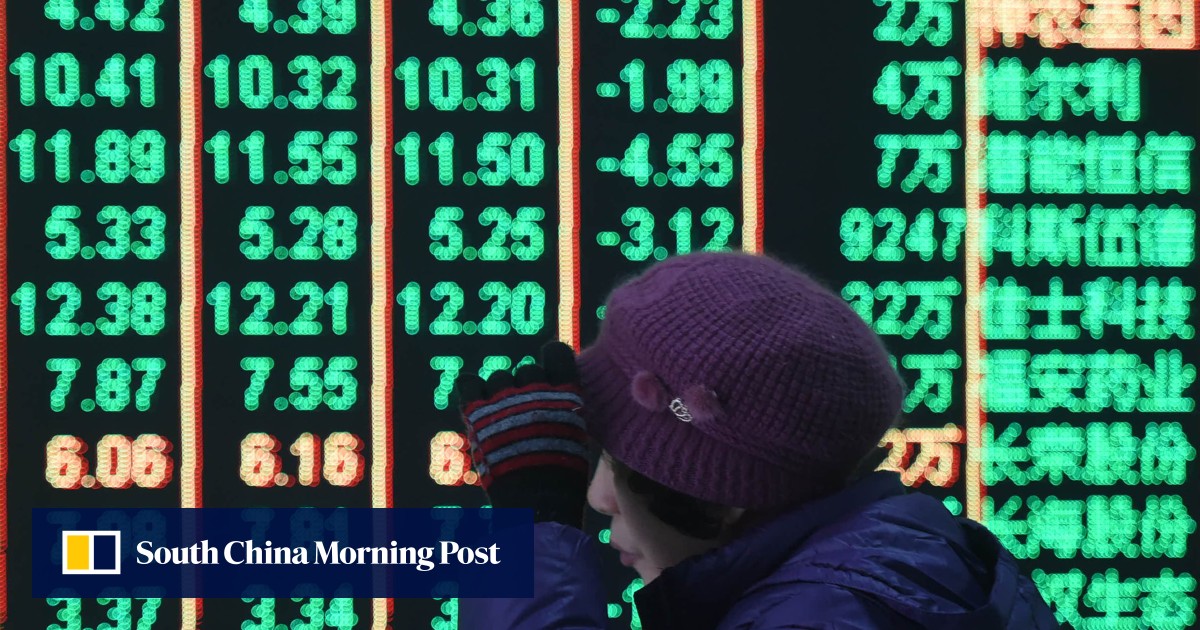US stocks are hitting record highs, with tech giants such as the “magnificent seven” continuing to stand out, but the bonanza has fuelled debate over the relationship between the markets and the real economy.
“Magnificent seven” refers to an informal grouping of US technology behemoths, used as a metric for the sector as well as the economy at large. The companies involved are Nvidia, Tesla, Meta Platforms, Apple, Amazon, Microsoft and Alphabet.
At US$13 trillion, their combined market capitalisation is nearly half of the United States’ US$27.4 trillion gross domestic product (GDP), and nearly 75 per cent of China’s US$17.5 trillion.
Riding the new wave of demand for artificial intelligence, cloud computing and upbeat expectations for the US economy, the seven stocks accounted for 45 per cent of the S&P 500’s SPX return in January, and a more striking 71 per cent when Tesla is excluded and shares are slashed, said Michael Hartnett, Bank of America’s chief market strategist, in a note last week.
It may be difficult to rely on robust economic growth … to drive a recovery in the stock market
Beijing has ramped up efforts to prevent a downturn in recent weeks after mainland stocks fell to a five-year low. But analysts said the measures could only lead to a temporary rebound, and a sustained rally must be backed by improving economic fundamentals.
The plunge in China’s stock market shows a systematic collapse of investor confidence, and the drastic fluctuations are different from those driven by small issues or unexpected events in the past, according to a report published by Ambound, an independent think tank.
“This time, the lack of confidence in the stock market is compounded by issues outside the capital market, broader economic and societal concerns,” Ambound said last week. “With China’s economy facing challenges, it may be difficult to rely on robust economic growth as in the past to drive a recovery in the stock market.”
A heightened focus on national security and subsequent investigations of foreign companies have also sent chills up the spines of overseas investors. They have long voiced concerns that unpredictable policies have tarnished the allure of the Chinese market to outsiders.
China economy: manufacturing, consumption to drive 2024 gains, Fidelity says
China economy: manufacturing, consumption to drive 2024 gains, Fidelity says
“China would do well to learn from the openness and transparency of US equity markets, including a high standard of corporate disclosures, climate concerns, and the presence of aspirational activist investors,” said Swarup Gupta, industry manager at the Economist Intelligence Unit (EIU).
Financial development is critically important, said Zheng Yongnian, an adviser to Beijing’s policymakers.
The market – rather than window guidance – should be allowed to play a more prominent role
“Finance should support technological transformation in enterprises, as evidenced by venture capital in the United States,” said Zheng, also president of the Institute for International Affairs Qianhai, a think tank based in Shenzhen.
“We cannot separate finance from the real economy. As excessive financialization, seen in the United States, has led to many negative effects, we must prevent similar situations from arising,” he said.
There’s no country that attaches more importance to letting the financial sector serve the real economy than China, said Tianchen Xu, senior China economist at the EIU, but its goal of building itself into a global financial powerhouse is being hindered by tight capital controls.
“Credit growth has outpaced nominal GDP growth for a long time, but the economy struggles to improve, suggesting there’s some resource misallocation. Therefore, the market – rather than window guidance – should be allowed to play a more prominent role.
“Keeping the door half closed makes it easy to manage capital flows, but as a result institutions and investors have little chance to participate in the global financial arena. That is why China already boasts many globally competitive enterprises in manufacturing and technology, but its financial sector struggles to gain worldwide recognition.”







